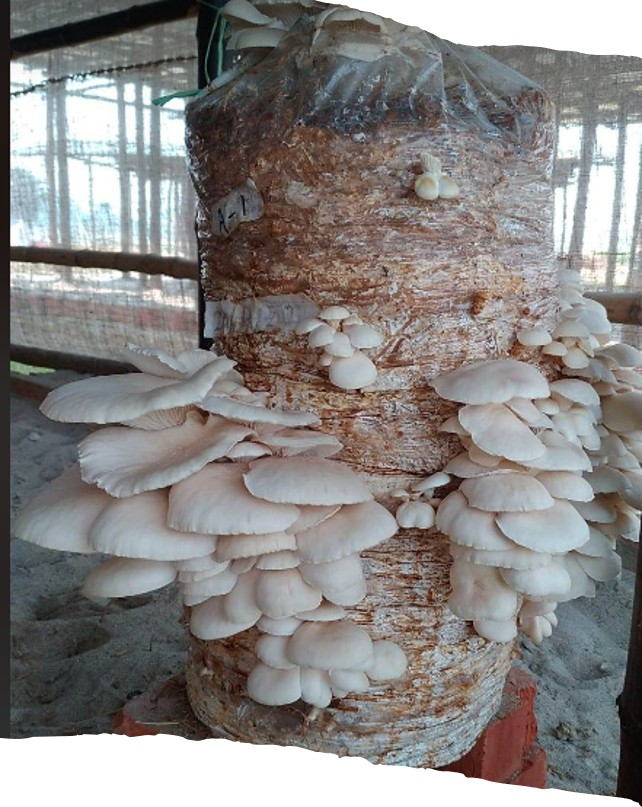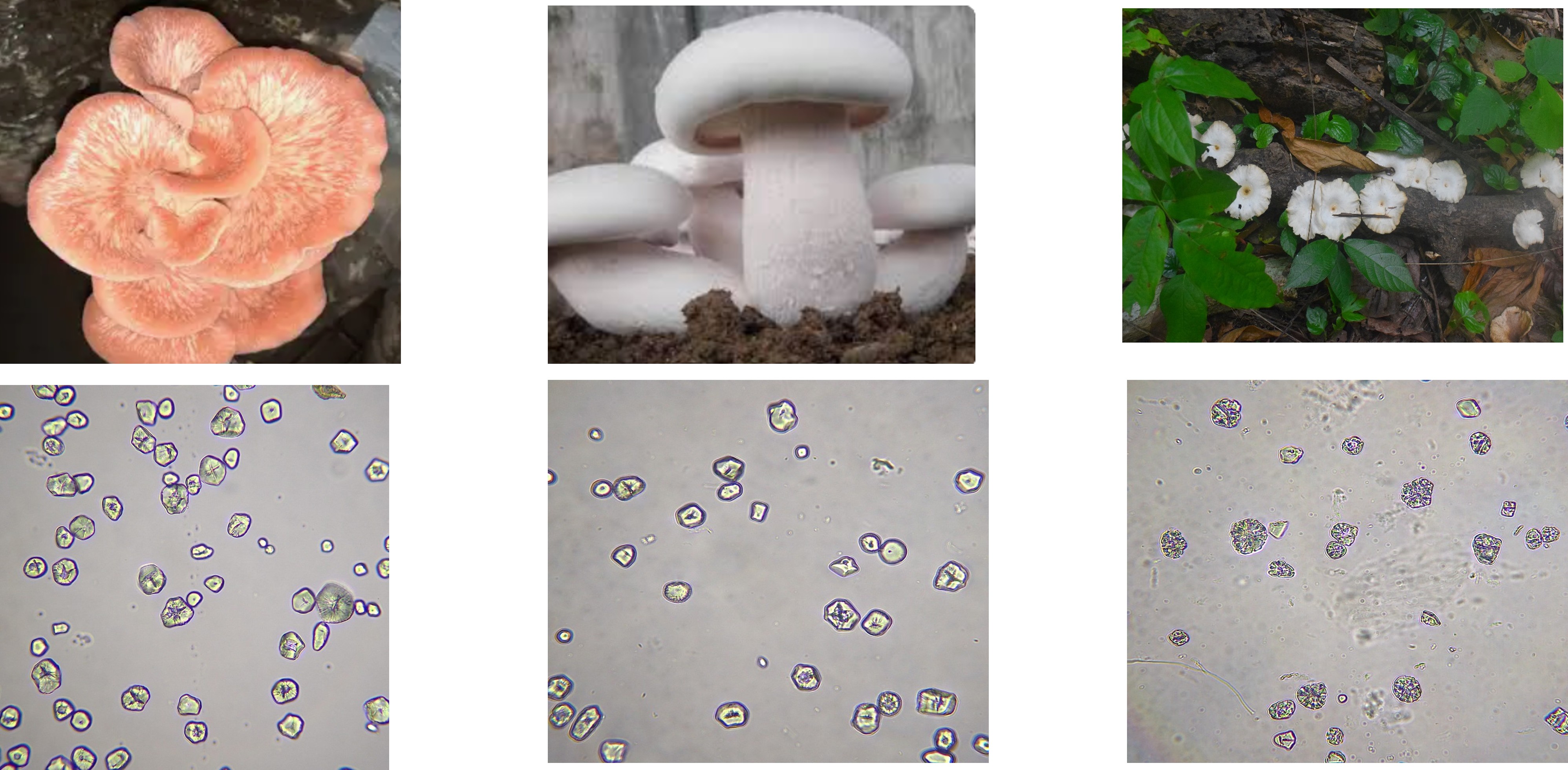Developing mushroom variety through conventional and/or advanced fungal breeding techniques
Dhaka
The high-protein mushroom presents significant potential for Bangladesh, offering opportunities for food security, increased crop diversity and poverty alleviation. However, several challenges hinder its widespread cultivation, including the lack of diverse varieties, limited availability of high-quality spawn, and poorly established market channels. One of the most pressing issues is the limited varietal diversity especially summer variety. Consequently, farmers face constraints in cultivating mushrooms during summer, despite the growing demand for mushrooms in the country. Addressing these challenges and enhancing genetic diversity are essential steps toward realizing the full potential of mushroom cultivation in Bangladesh.
Wild mushrooms collection. The single spore isolation method. Variety development of mushroom through protoplast fusion.
• A novel, simple, low-cost, and efficient single-spore culture protocol has been developed. • A Protocol for isolating protoplast has been successfully established. • A presumptive somatic hybrid has been successfully achieved. This is the first work in Bangladesh. • Two native summer wild mushroom varieties have been incorporated into existing germplasm.
Cultivation of wild button mushroom could mark a significant breakthrough, offering a summer alternative and a potential industrial variety. Wild species may possess unique traits that can enrich biodiversity and contribute valuable genetic resources to ongoing mushroom breeding and hybridization efforts. The developed single spore isolation method is reliable, efficient, and minimizes contamination risks. Moreover, it requires only basic tissue culture equipment, making spore collection more accessible to mushroom farmers. Developing somatic hybrids through protoplast fusion opens new opportunities for the mushroom industry in Bangladesh, enabling the efficient creation of climate-adapted varieties.
Heat-tolerant and high-yielding varieties enable farmers to cultivate mushrooms year-round, reducing seasonal production gaps and ensuring a stable income. This consistency in supply strengthens market linkages by increasing availability, stabilizing prices, and attracting larger buyers, including supermarkets and food industries. Additionally, locally developed varieties reduce dependence on imported strains, lowering production costs and making mushroom farming more accessible. Overall, mushroom variety development enhances farmer profitability, expands market opportunities, and contributes to a more resilient and sustainable mushroom industry.
By introducing high-yielding, heat-tolerant, and locally adapted strains, farmers and agribusinesses can engage in year-round production, ensuring a steady income and expanding market opportunities. This encourages small-scale growers and startups to invest in mushroom farming, creating jobs and boosting the economy. Additionally, sustainable variety development reduces dependency on imported strains, optimizes resource use, and promotes eco-friendly cultivation by utilizing agricultural waste as substrates. Overall, it strengthens food security, enhances economic resilience, and contributes to a more sustainable agricultural system.
• Continuous Research & Development: Maintain ongoing breeding programs to improve heat tolerance, yield, and disease resistance and established a linkage with industry stakeholders. • Farmer Adoption & Capacity Building: Conduct training programs for farmers on the cultivation and management of new varieties. Encourage organic and climate-smart farming techniques. • Policy Advocacy & Institutional Support : Engage with policymakers to integrate mushroom farming into national agricultural strategies. • Community-Based Seed Bank & Distribution: Establish seed banks for indigenous and improved varieties to ensure long-term availability and develop local distribution networks for quality spawn supply.


